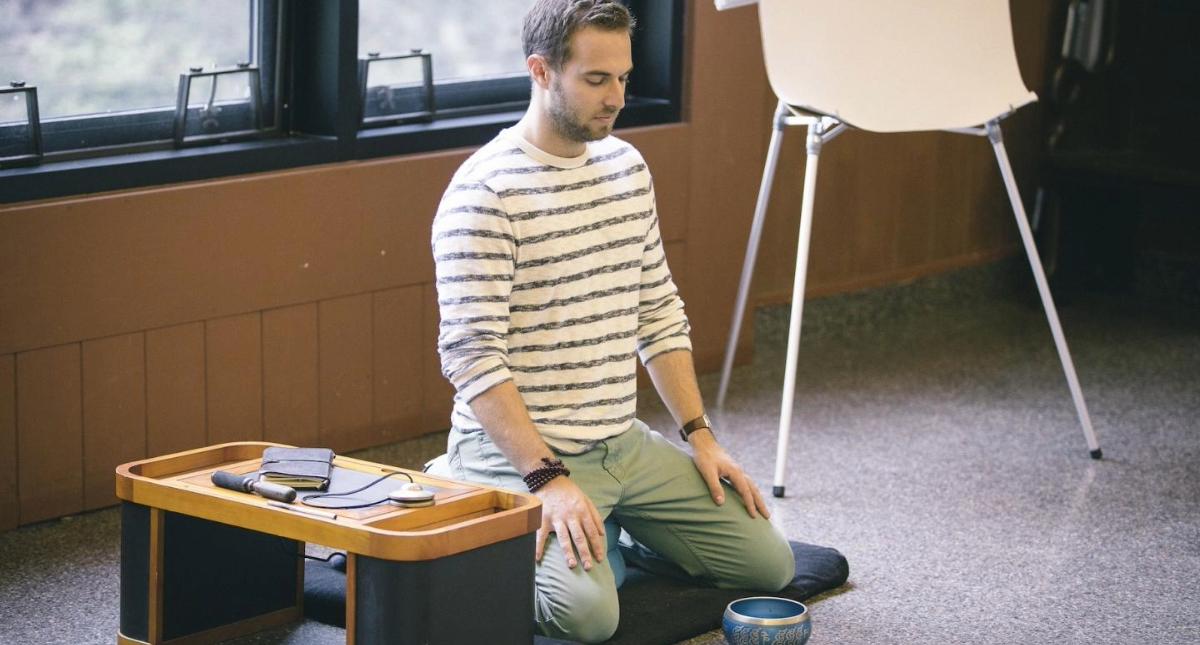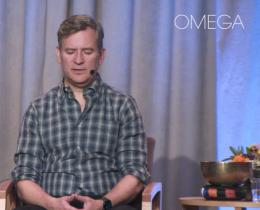Where does your mind go when you get stressed? Do you slow down, tend to your body, and get quiet? Do you make space to hear your inner guidance? Or do you find yourself spiraling, disconnecting from yourself, and reaching for a distraction? For most people, it’s the latter. And it’s important to note that this is a part of the personal growth process.
It can feel all too easy to disconnect from yourself during periods of intense stress and anxiety. This is true in all regards—for your professional, personal, and internal life. More than that, the stress of work, external pressures, and outside noise can easily drown out your inner knowing, making it hard to find your way back to yourself. This is what teacher and author Cory Muscara calls misalignment.
Slowing Down Can Support You at Work
Stress is a natural part of the human experience. It ebbs and flows depending on our life circumstances and internal landscape. As Cory Muscara notes, stress is not inherently bad, but rather, it’s an indicator that something is calling for our attention. And many of us were taught to “push through” rather than “slow down” in micro-moments of stress and anxiety.
This is true, especially in our professional lives. Often, we do the opposite of what we really need, thinking that it will hinder productivity and halt progress. On the contrary, making space to slow down and listen to the whispers of your body will support both your personal and professional life. You are of more service when you’re full, clear, and aligned, rather than stressed and spinning.
Listening to Your Quiet Knowing in Times of Stress
Reorienting your mind and nervous system to slow down in times of stress can be quite simple. However, Cory mentions that it takes practice.
The next time you notice the familiar signs of stress and anxiety bubbling up (shallow breathing, tightened chest, clenched jaw, etc.), pause what you’re doing. Place both hands on your heart and take some intentional breaths. You can ask a simple question like, “What does my body want me to know?” Or, “What is the whisper of my soul telling me?” Take five minutes simply to listen and be still. Cory says that plugging into your inner knowing, rather than the voice of the ego, will bring you back into alignment.








